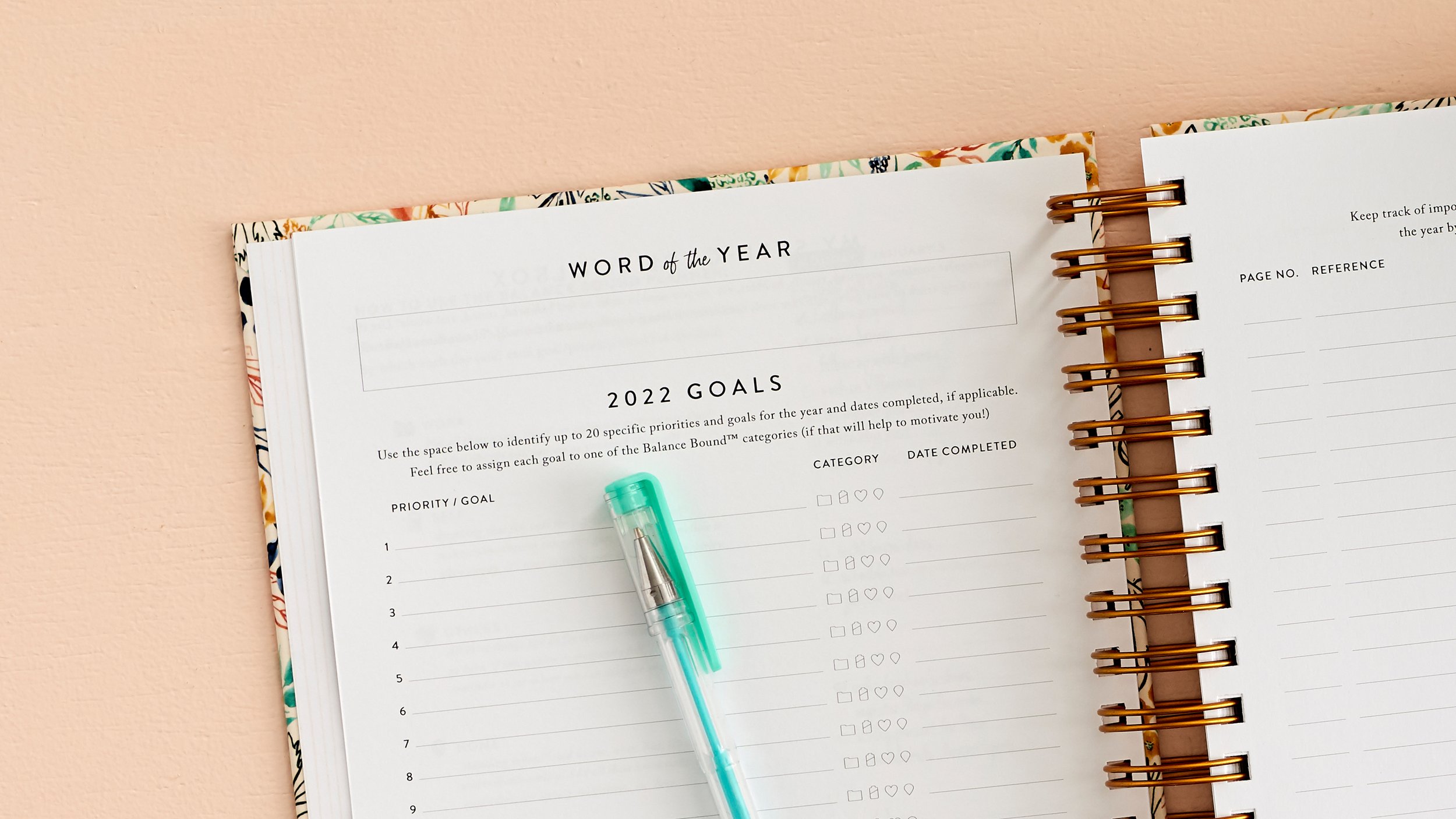Goal Setting Tips & Strategies (for People Who are Stressed Out by Goals)
by Brooke Forry
True story: I have not been the type of person to set clear goals throughout my life. I was always a dreamer, and a person driven by a motivation to reach new heights… but not someone who set clear and actionable goals, per se.
The idea of goal-setting often overwhelmed me. Goal-setting workbooks stressed me out and were left abandoned soon after I filled out the first few pages.
My outlook on setting goals shifted a few years after becoming a mother. Once kids were on the scene, suddenly time warped and moved in different ways — often an amorphous and blurry blob of exhaustion — and outside of my identity as a mom, I didn’t feel much personal fulfillment. I started to feel like maybe I should give goal-setting another try to feel more personally accomplished and able to show up as a better version of myself for my family, my business, and my friends.
The difference this time was in my approach.
With a few years of successful goal-setting under my belt, here are the things that have worked well for me — a formerly goal-averse person — that may help you, too.
Reframe goals as simply reminders.
As someone who gets easily overwhelmed and anxious by too many tasks, I stopped approaching goals as to-dos that were hanging over my head and reframed the narrative: goals are simply reminders of what I want to accomplish with my time. This brought a lot more joy to certain goals, such as the number of books I want to read in a year: I didn’t just want to read 35 books in 2021 for the sake of checking a box — I wanted to read 35 books that enlightened me, educated me, and made me feel my feelings. Setting the goal was simply a regular reminder to always have my next book on deck as I come close to finishing one, read when I have downtime instead of scrolling mindlessly on my phone, listen to interesting audiobooks when driving or tackling chores, and always be seeking out books that pique my interest in personal growth.
Set realistic and practical goals.
Keep your starting line in mind before deciding what your finish line will be. Want to start running and make it a regular part of your wellness journey, but know that you won’t realistically have time for long runs more than once a week, or have a past injury that will limit how fast you can adopt a new fitness regimen? Maybe jumping straight to a goal of running a marathon in 12 months is setting you up for disappointment. How about a 5K, 5 mile race, or half marathon? Whatever your finish line, know yourself and be realistic about what’s truly possible before determining what you’d like the finish line to be.
Set specific, not vague, goals.
“Travel more” sounds like a wonderful goal (especially after the past few years of pandemic limitations) — but is it specific enough to push you to take action? Goals that are too broad or vague can often prevent us from knowing where to start. Rather than just saying we want to take our kids to Disney World, last year my husband and I set a goal to save for a 2022 trip. That pushed us to incorporate this goal into our meetings with our financial advisor, set aside a separate fund for vacation savings, and reach out to a Disney travel agent to begin working out the details. Guess where we’re going in a few months?
Build systems that will help you achieve your goals.
Atomic Habits author James Clear says, “The purpose of setting goals is to win the game. The purpose of building systems is to continue playing the game.” Creating systems lay the foundation for success; setting a goal to write a novel in 2022 is wonderful, but having a system for how often you will write, how many words you need to write each day (or week, or month), and even where you will write are the systems that are setting you up for success.
Don’t feel pressured to set a certain number of goals.
It’s about quality, not quantity. Focus more on what you truly want to achieve and less on the number of goals you set for yourself. Don’t set so many goals that you feel overwhelmed deciding what to focus on first, or unable to realistically chip away at what’s on your list. Remember: your goals are for you, no one else, and you make the rules, including how many goals you’d like to set at any given time.
Don’t get too caught up in deadlines.
There is nothing magical about when you set or achieve a goal that makes it more or less of an accomplishment. Setting goals on January 1 and achieving them by December 31 is not necessary, nor is achieving a goal within a year. The important thing about goals is that you’re working towards them and gaining perspective and personal fulfillment in the process — whether you ultimately achieve them, or even learn that something is no longer a goal you’re interested in achieving.
Go easy on yourself.
While achieving goals can bring personal growth and fulfillment, there are no demerits or punishments for not achieving them. Goals are for you and only you; if you don’t achieve what you had hoped for or worked towards, resist negative self-talk or being too hard on yourself. No matter if you set or achieve goals or not: YOU ARE AWESOME. And don’t forget it.
• • •
What are your favorite goal-setting tips and strategies — especially for the goal-averse?


